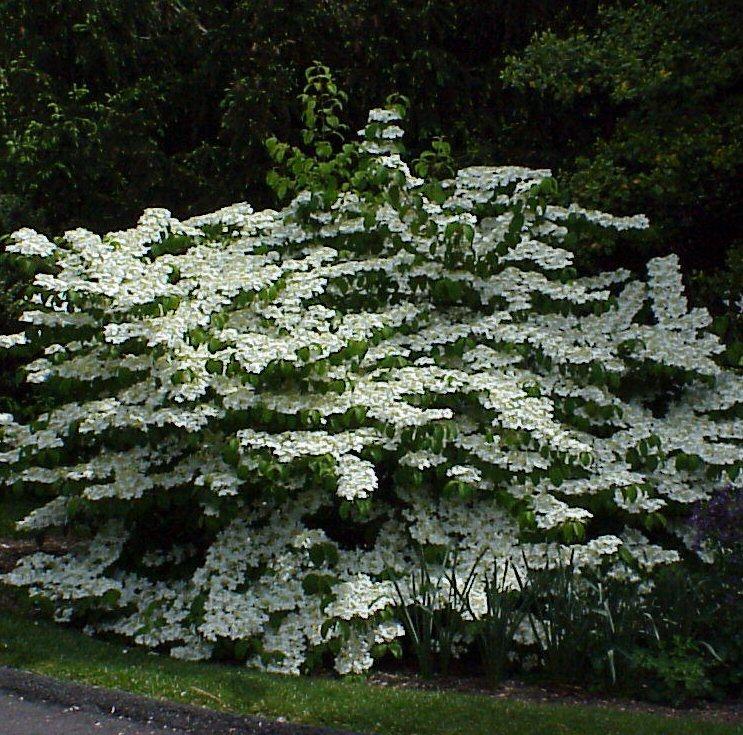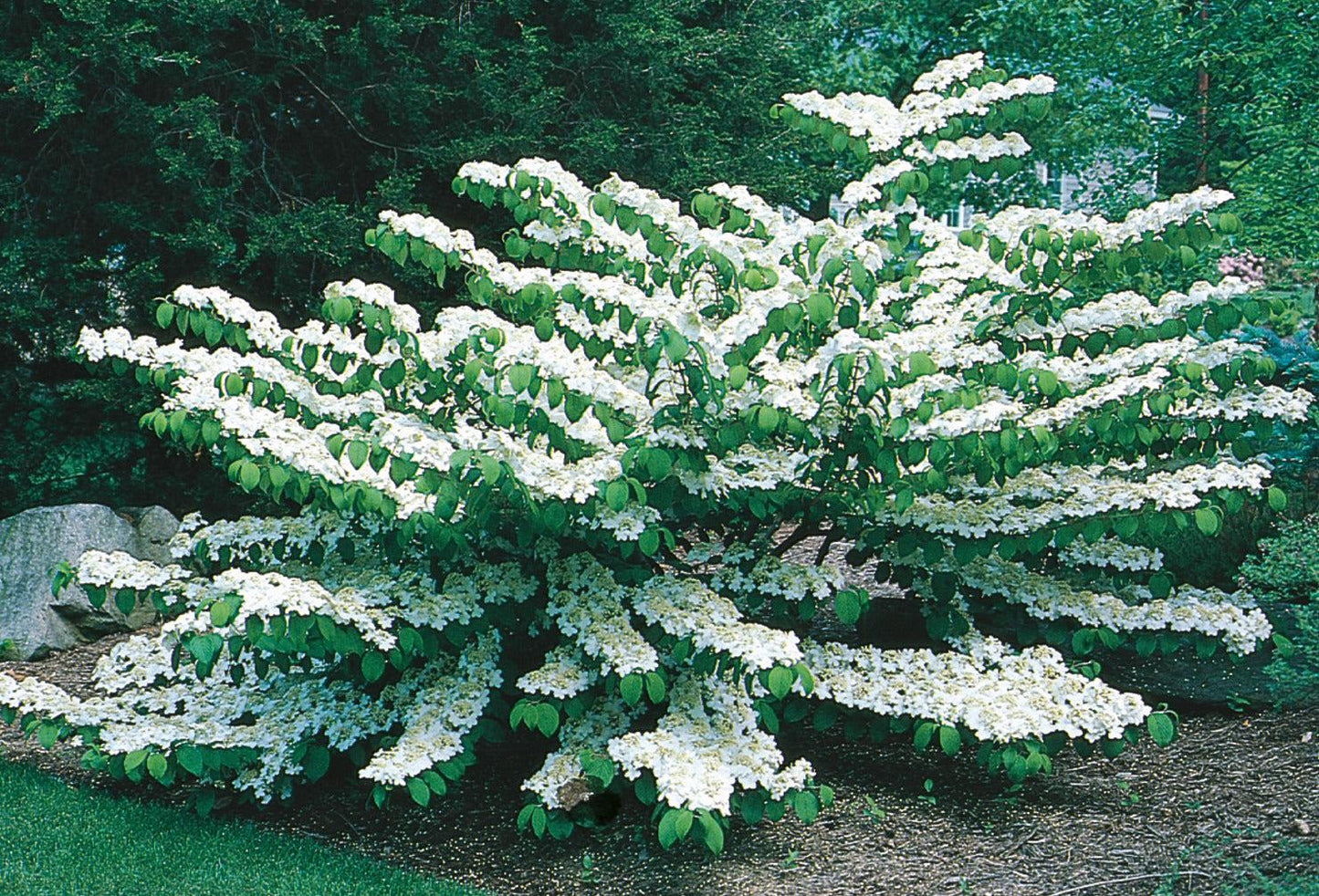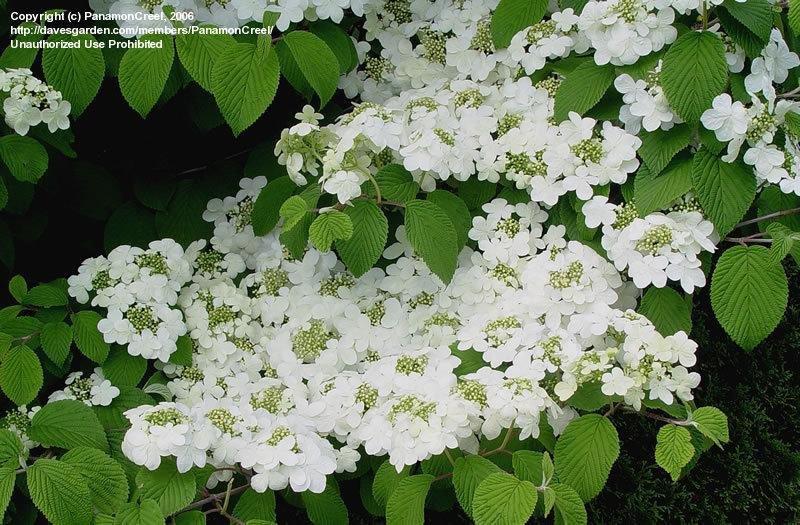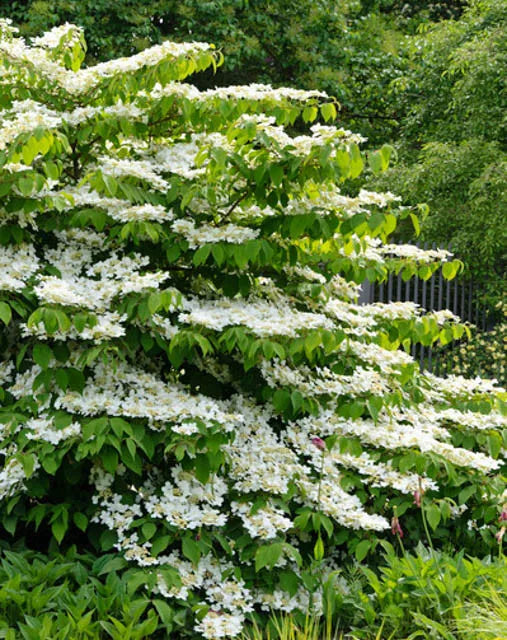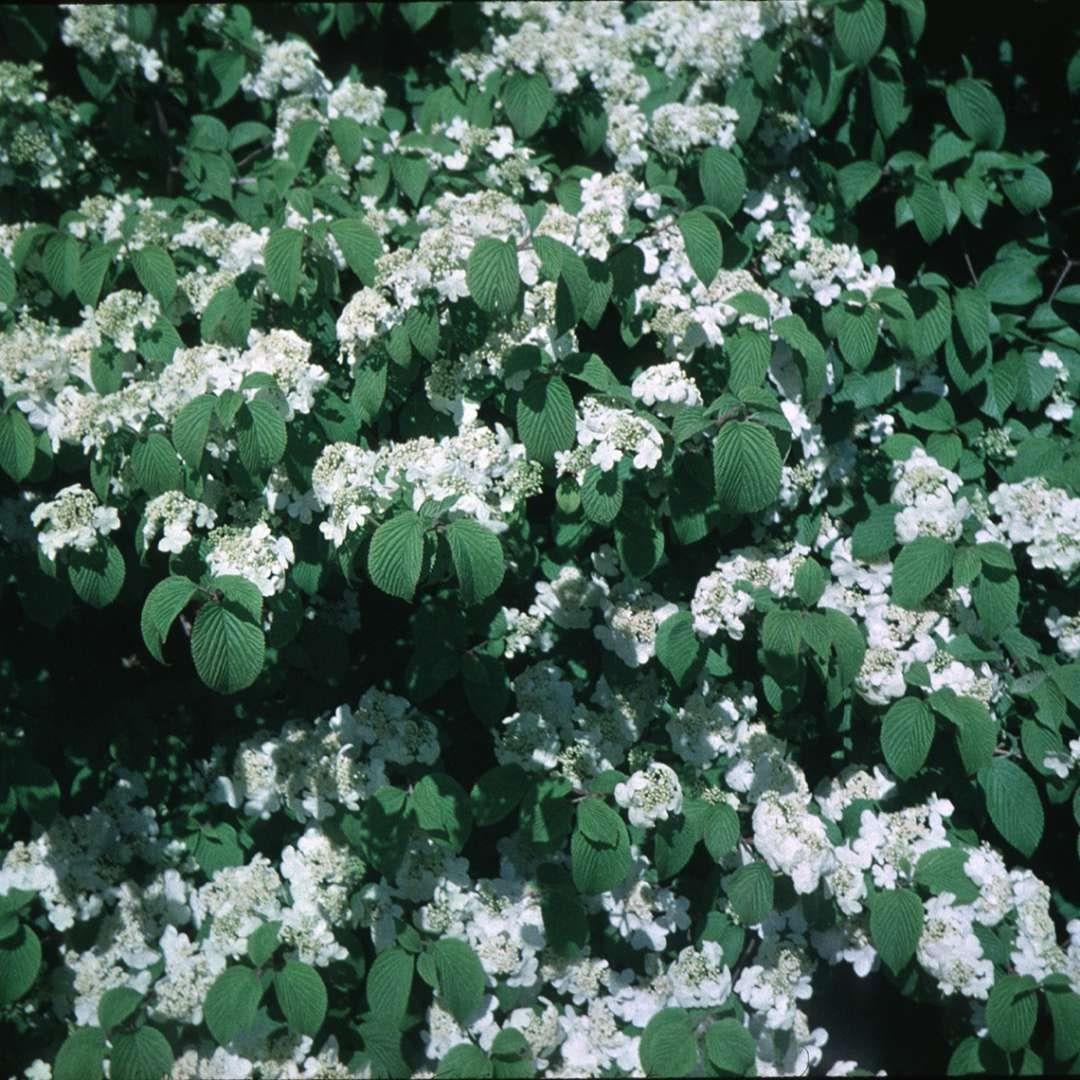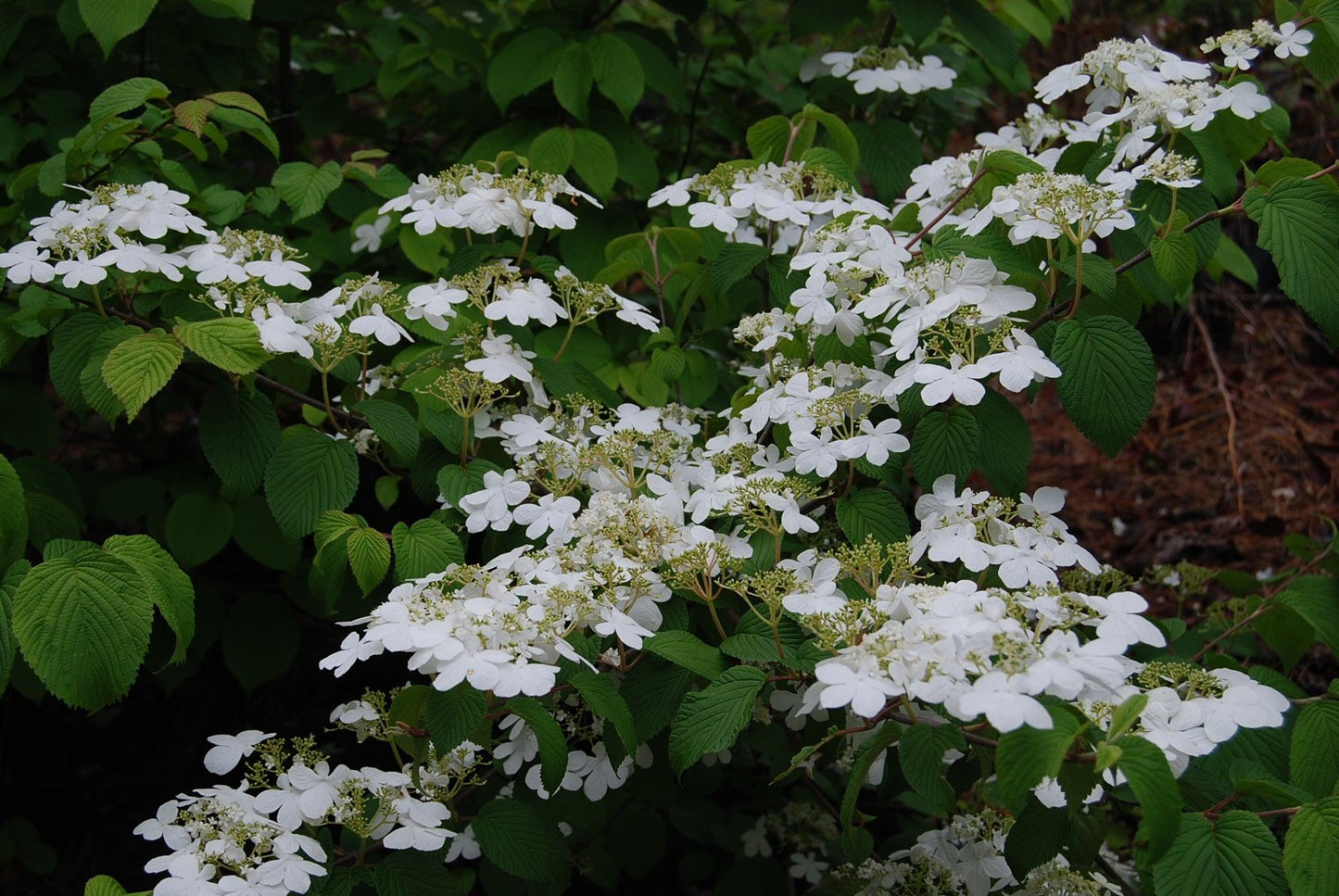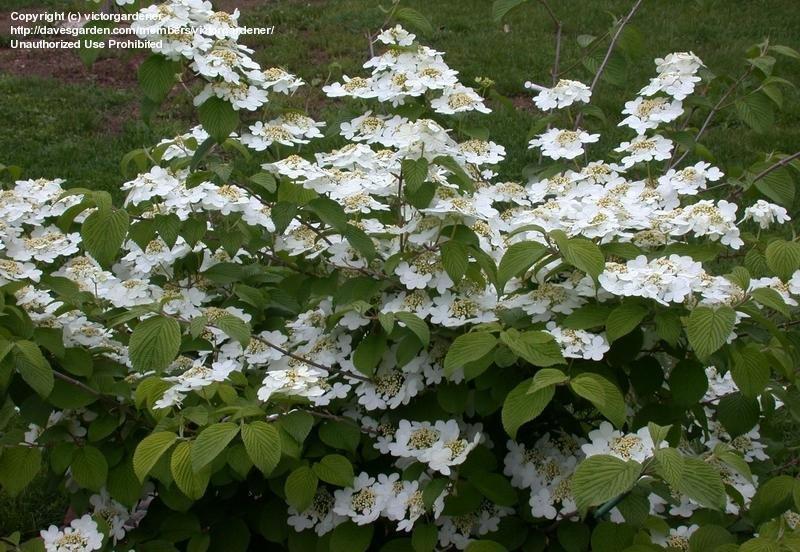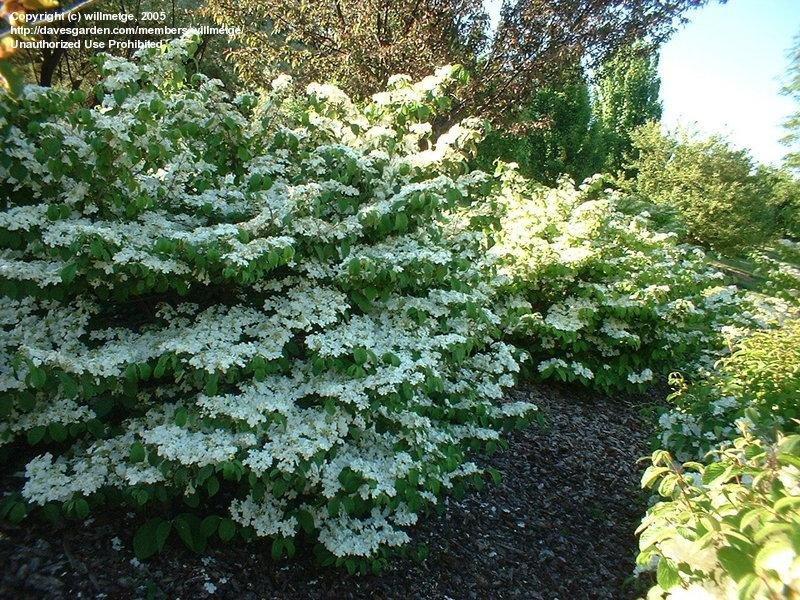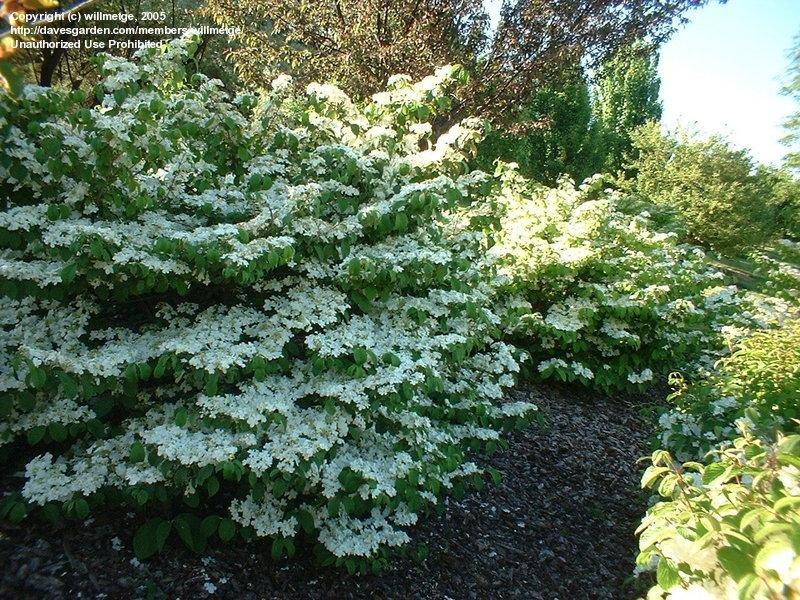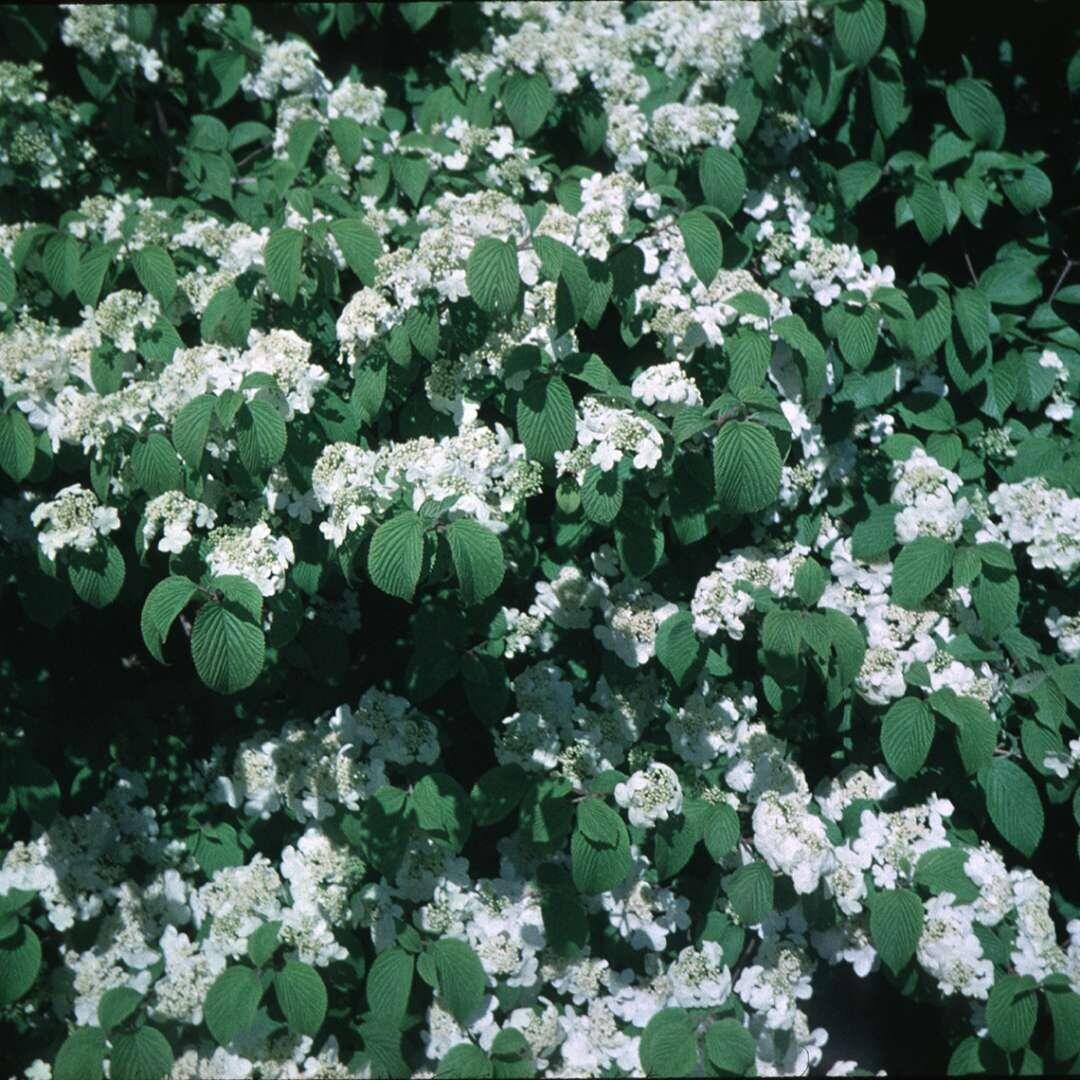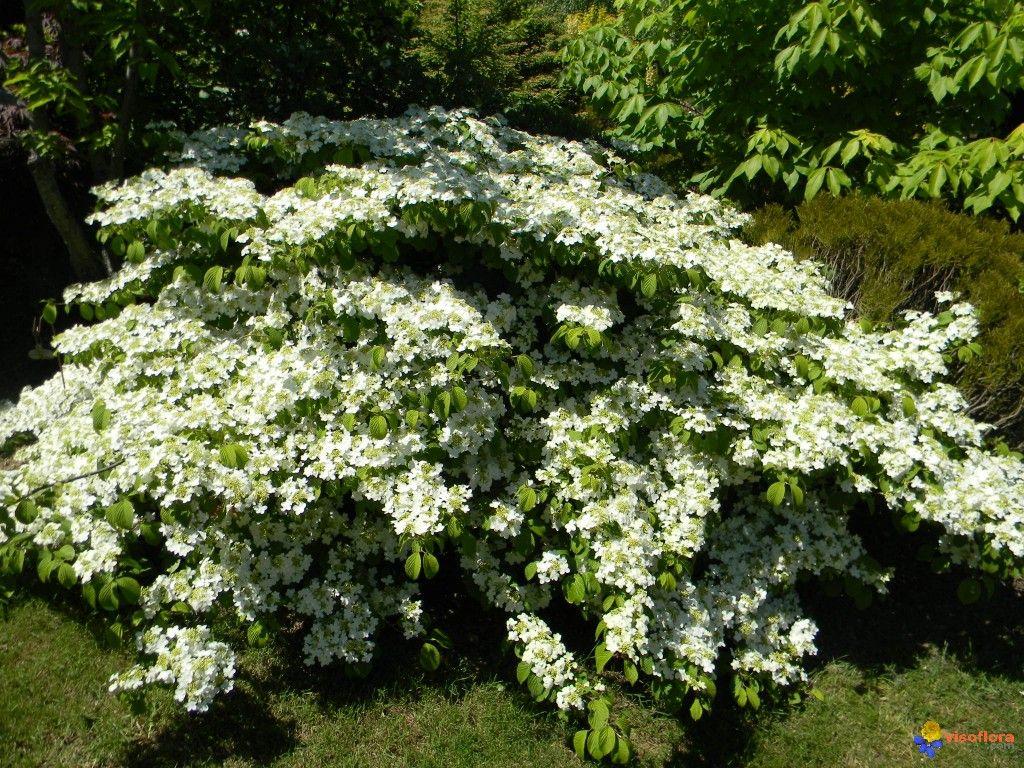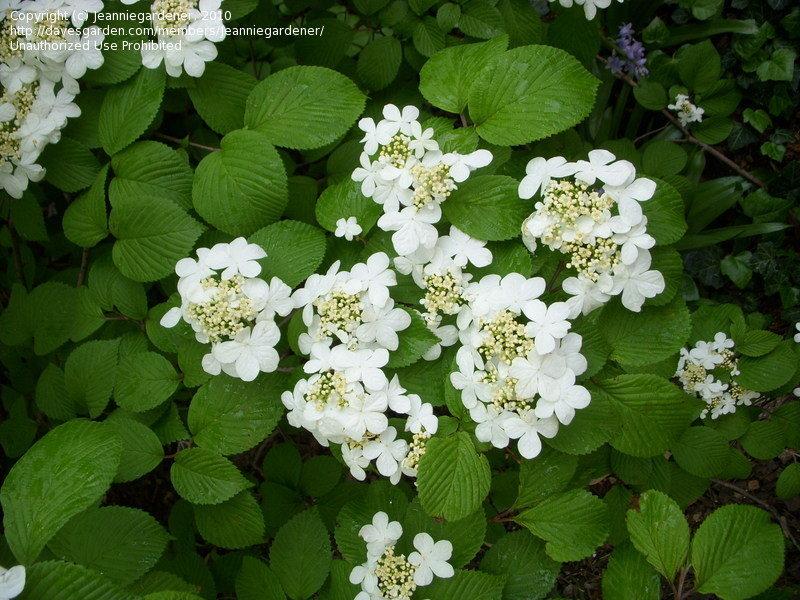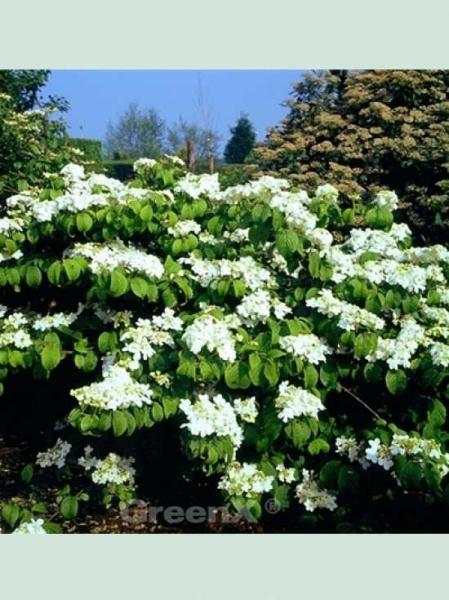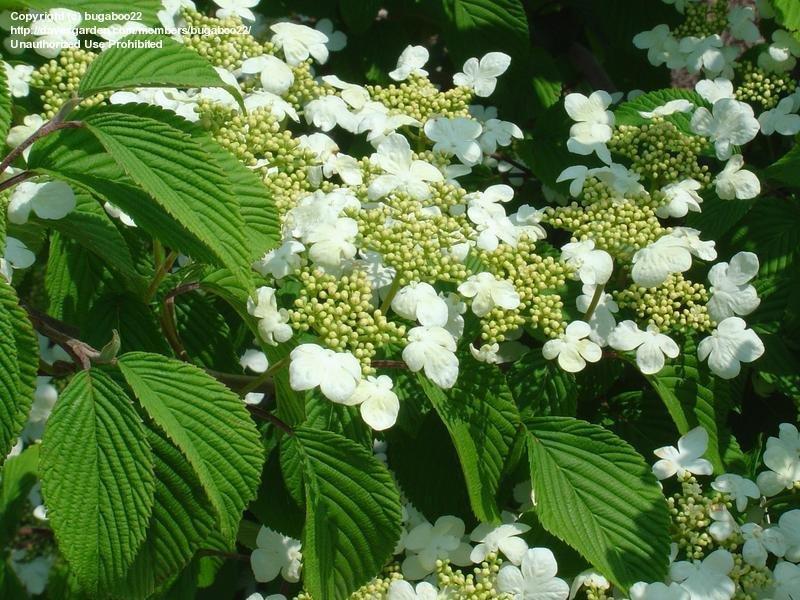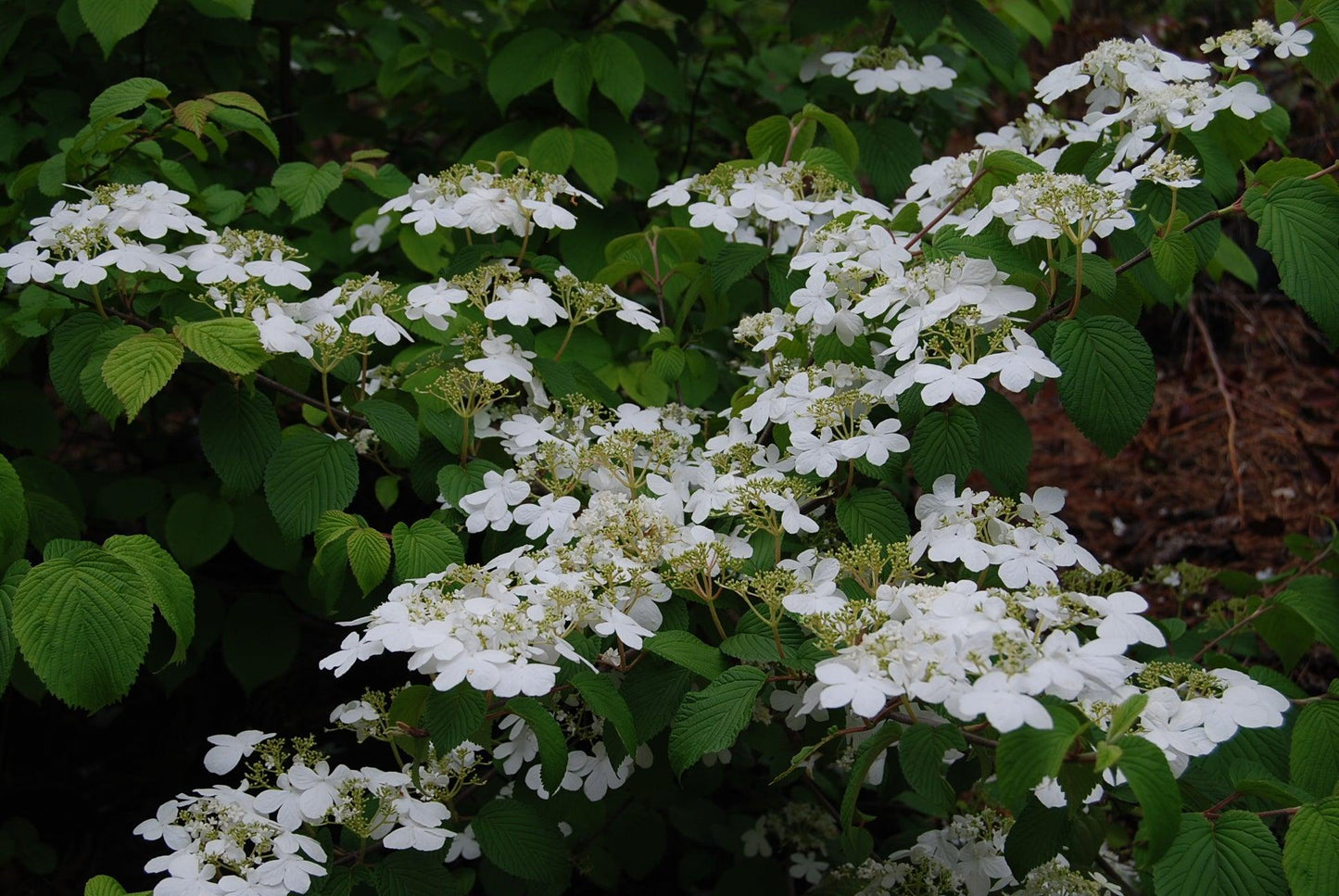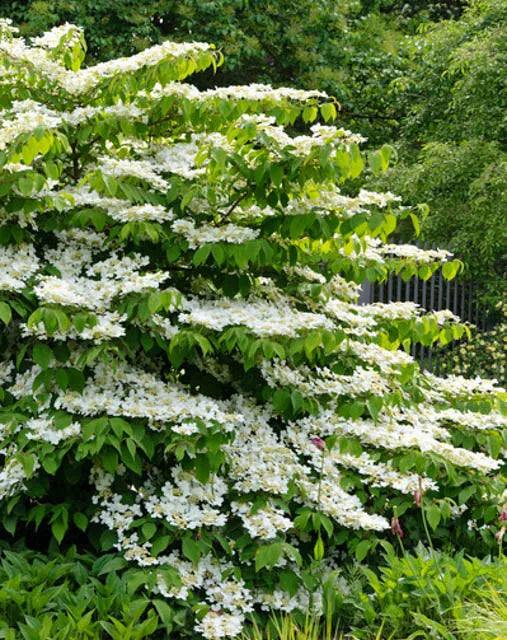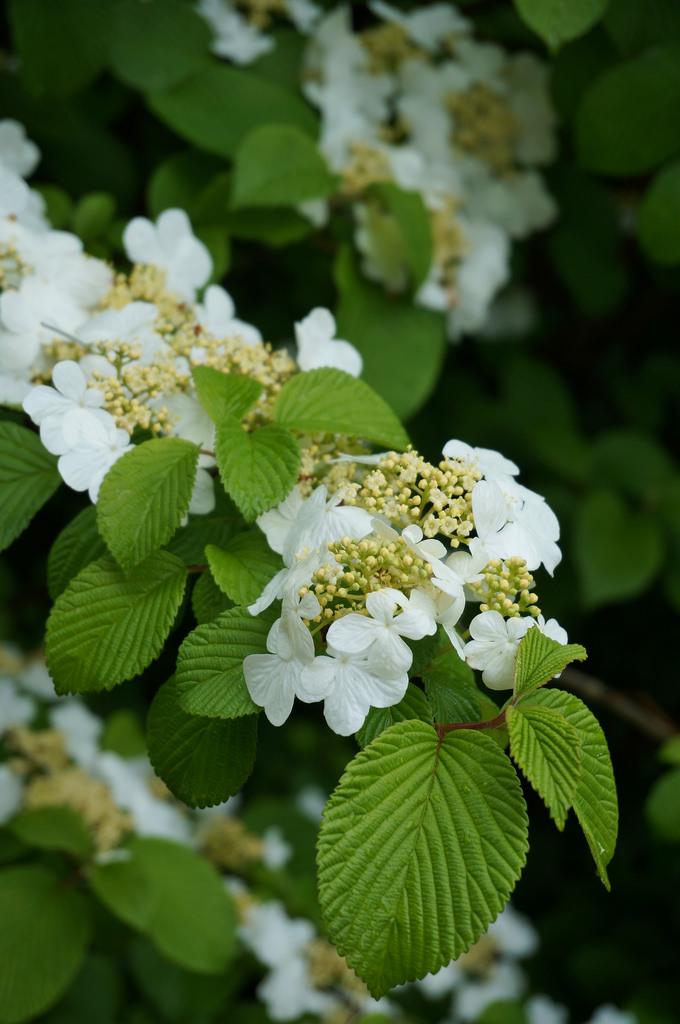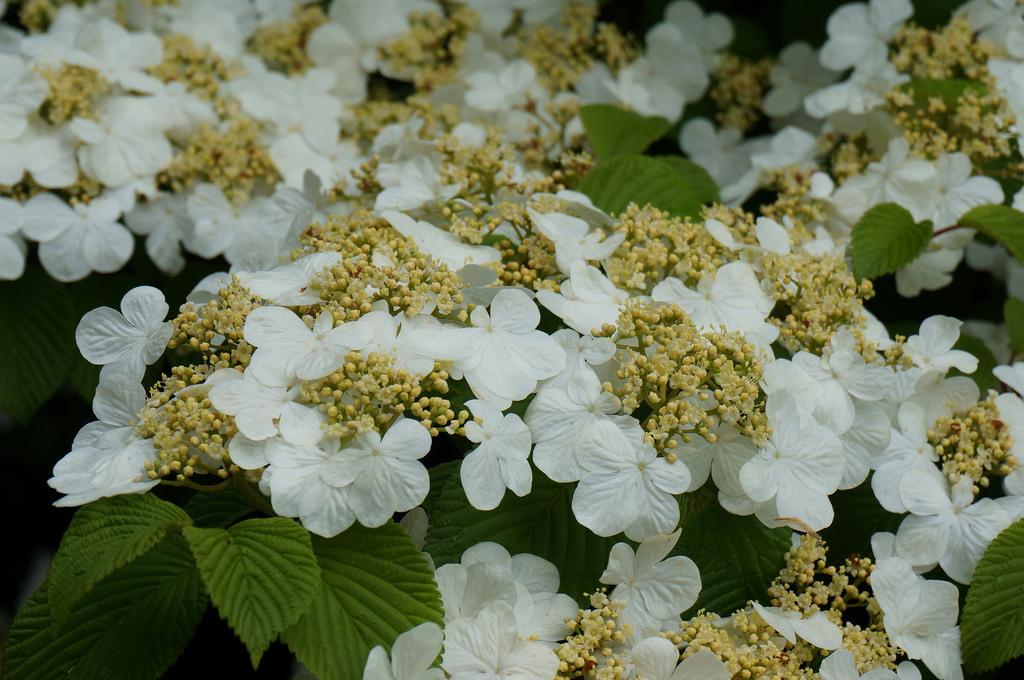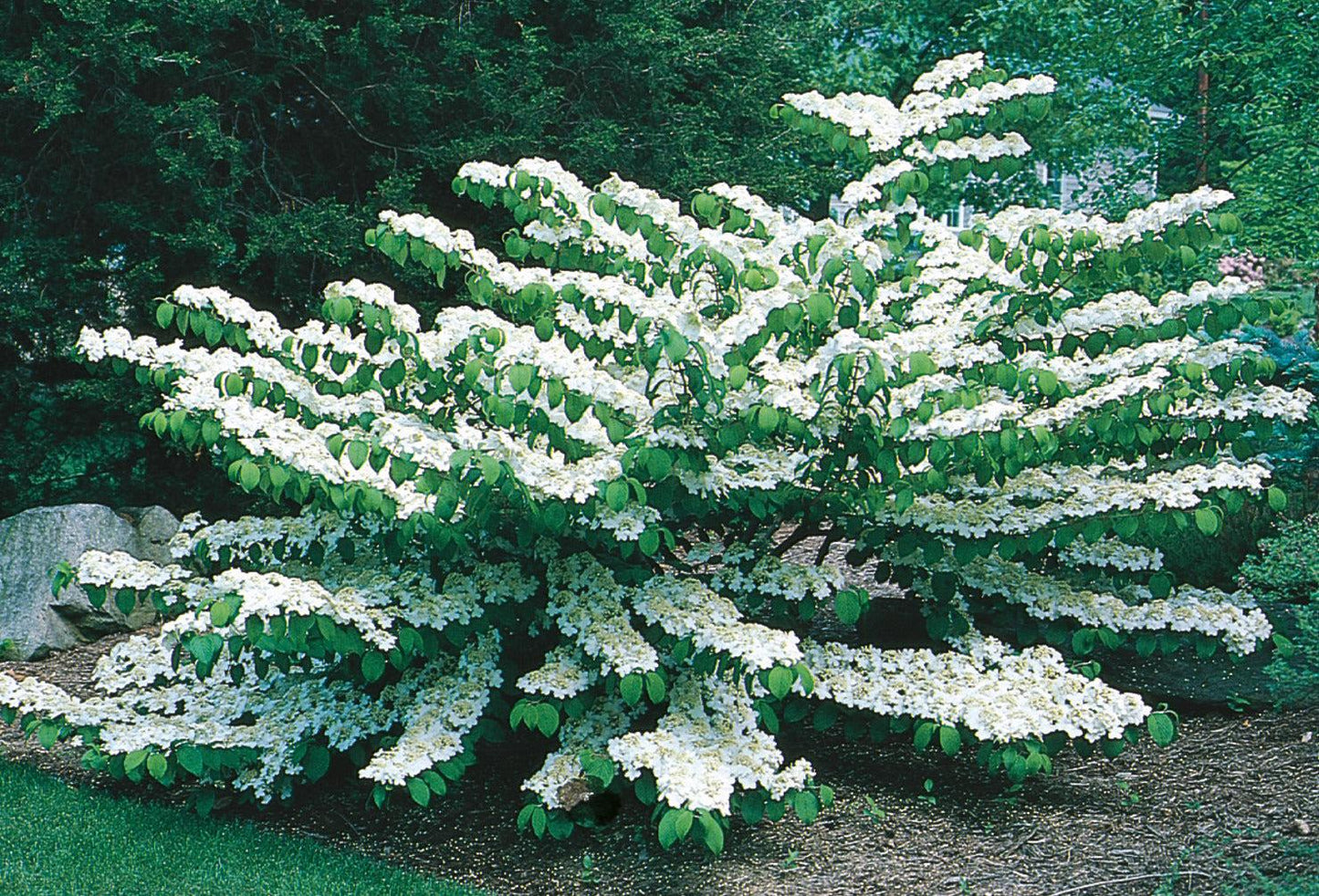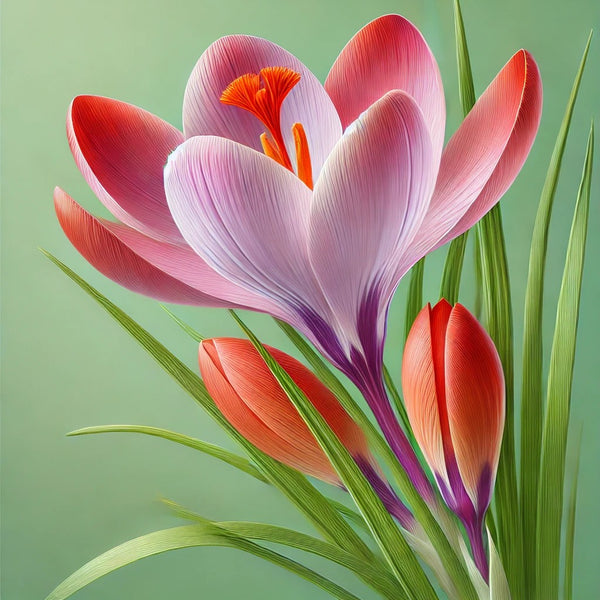1
/
of
19
Shasta Doublefile Viburnum–Deciduous Shrub–Attracts Pollinators 10 Gallon
Shasta Doublefile Viburnum–Deciduous Shrub–Attracts Pollinators 10 Gallon
Regular price
$340.00 USD
Regular price
$442.00 USD
Sale price
$340.00 USD
Unit price
/
per
Shipping calculated at checkout.
SKU:nsf5782-redcrocus
Couldn't load pickup availability
Viburnum plicatum var. tomentosum 'Shasta'
Description
The 'Shasta' Doublefile Viburnum is a deciduous shrub known for its stunning horizontal branching and profuse white lacecap flowers that bloom in spring. It offers a layered look, with dark green leaves that turn a beautiful reddish-purple in the fall. This plant is an excellent choice for adding structure and seasonal interest to gardens.
Suggested Uses
Ideal for use as a specimen plant, in mixed borders, or as part of a hedge. Its attractive flowers and foliage make it a great choice for wildlife gardens, attracting pollinators such as bees and butterflies.
Plant Details
-
 Botanical Name: Viburnum plicatum var. tomentosum 'Shasta'
Botanical Name: Viburnum plicatum var. tomentosum 'Shasta' -
 Common Name: Shasta' Doublefile Viburnum
Common Name: Shasta' Doublefile Viburnum -
 Size & Growth: 6-8 feet tall and wide
Size & Growth: 6-8 feet tall and wide -
 Hardiness Zones: 5-8
Hardiness Zones: 5-8 -
 Foliage Type: Deciduous
Foliage Type: Deciduous -
 Bloom Time: Late spring
Bloom Time: Late spring -
 Growth Rate: Moderate
Growth Rate: Moderate -
 Light Requirements: Full sun to partial shade
Light Requirements: Full sun to partial shade -
 Attracts Pollinators: Yes
Attracts Pollinators: Yes -
 Indoor Friendly: No
Indoor Friendly: No -
 Container Friendly: No
Container Friendly: No -
 Deer Resistant: Yes
Deer Resistant: Yes -
 Pet Warning: Non-toxic to pets
Pet Warning: Non-toxic to pets -
 Fragrant: No
Fragrant: No -
 Cut Flower: Yes
Cut Flower: Yes -
 Grows Well With: Azaleas, Rhododendrons, and other shade-tolerant plants
Grows Well With: Azaleas, Rhododendrons, and other shade-tolerant plants
Care Tips
-
 Planting Instructions: Plant in spring or fall, ensuring the root ball is level with the soil surface.
Planting Instructions: Plant in spring or fall, ensuring the root ball is level with the soil surface. -
 Soil Moisture: Keep soil consistently moist, especially during dry periods.
Soil Moisture: Keep soil consistently moist, especially during dry periods. -
 Soil Type: Prefers well-drained, slightly acidic to neutral soil.
Soil Type: Prefers well-drained, slightly acidic to neutral soil. -
 Humidity: Tolerates average humidity levels.
Humidity: Tolerates average humidity levels. -
 Pruning Instructions: Prune after flowering to maintain shape and remove dead wood.
Pruning Instructions: Prune after flowering to maintain shape and remove dead wood. -
 Winter Care: Mulch to protect roots in colder climates.
Winter Care: Mulch to protect roots in colder climates. -
 Planting Depth: Plant at the same depth as it was in the nursery container.
Planting Depth: Plant at the same depth as it was in the nursery container. -
 Fertilization: Fertilize in early spring with a balanced fertilizer.
Fertilization: Fertilize in early spring with a balanced fertilizer. -
 Special Care: Monitor for aphids and treat as needed.
Special Care: Monitor for aphids and treat as needed.
Share
